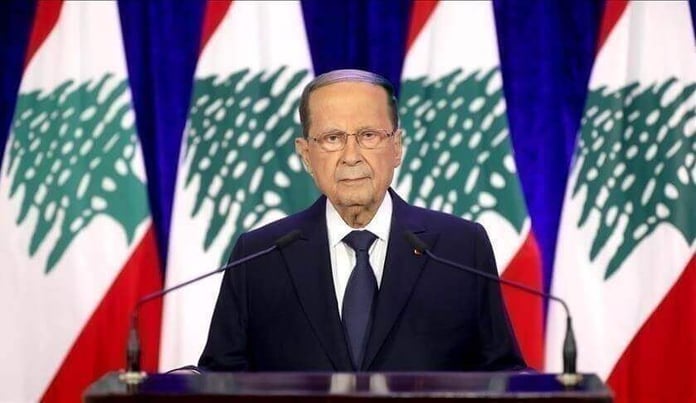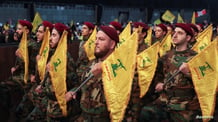
Lebanese President Michel Aoun left the capital, Beirut, on Monday, heading to Qatar, at the invitation of its Emir, Sheikh Tamim bin Hamad; To search for ways to strengthen and develop relations between the two countries in all fields.
According to a statement by the Lebanese presidency, which The Eastern Herald reviewed, Aoun left Beirut this morning, for Qatar, at the invitation of its Emir, Sheikh Tamim, to participate in the opening of the Arab Football Cup – FIFA 2021, which starts on Tuesday.
The statement stated that President Aoun will discuss with the Emir of Qatar “ways to strengthen and develop bilateral relations between the two brotherly countries in all fields, in addition to working to activate the Lebanese-Qatari Joint Higher Committee”, without specifying the duration of the visit.
The accompanying delegation includes Minister of Energy and Water Walid Fayyad, former Minister Pierre Raffoul, and Director General of Public Security Major General Abbas Ibrahim. The delegation in Doha will be joined by Ambassador Farah Berri.
Minister Fayyad is scheduled to discuss energy-related issues with Qatari officials, and the possibility of benefiting from their expertise in the field of exploration and extraction of gas and oil, according to the statement.
President Aoun’s visit is the first by a Lebanese official since the formation of Najib Mikati’s government, in addition to a diplomatic crisis that erupted between Beirut and Gulf countries, most notably Saudi Arabia and the UAE, last October against the background of statements by Lebanese Minister of Information George Kordahi about the Yemen war.
In an interview recorded last August (before his appointment as a minister), and broadcast on October 25, Qardahi said that the Houthis were “defending themselves against the attacks of Saudi Arabia and the UAE.”
Following the statement, the Gulf states took strict decisions towards Lebanon. Saudi Arabia, the UAE, Bahrain, Kuwait, and Yemen announced the withdrawal of their ambassadors from Beirut, but Saudi Arabia increased its package of decisions and stopped all Lebanese imports from entering it.
For two years, the Lebanese have been experiencing an unprecedented severe economic crisis that has led to a record collapse in the value of the local currency against the dollar, as well as a shortage of fuel and medicine, and the collapse of their purchasing power.













